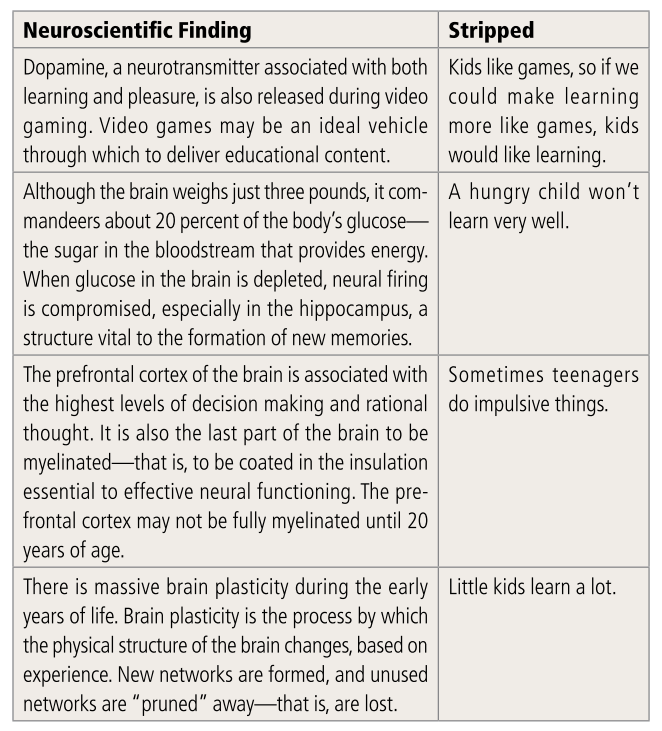
Kristin Simmers and Andrew Watson on the Role of Neuroscience in Education – Education Rickshaw
1 of my largest triggers is when a presenter at an training conference will claim, without the need of remaining equipped to issue to an report or a human body of exploration, that x, y or z is exploration-centered. And extra often than not, their research-absolutely free declare is accompanied by odd mind-primarily based language.
“We know that play-dependent mastering functions for instructing calculus,” they might say, “because participate in injects dopamine, an important neurotransmitter, right into the brain.”
When I listen to this type of things, I’m typically reminded of Daniel Willingham’s reserve, “When Can You Have confidence in the Specialists.” In this reserve, Willingham elegantly demonstrates how, when you “strip away” the elaborate sounding jargon of most neuroscientific conclusions, you’re usually still left with very little especially profound or new. For illustration, take into account this lengthy neuroscientific assertion: “Although the mind weighs just 3 lbs, it commandeers about 20 p.c of the body’s glucose— the sugar in the bloodstream that offers power. When glucose in the mind is depleted, neural firing is compromised, particularly in the hippocampus, a construction essential to the formation of new memories.”

Whilst it is definitely sciencey sounding, this assertion could conveniently be minimized to just a couple phrases, namely, “A hungry child will not understand very very well.”
As someone who is deeply concerned about the point out of professional progress in training, and persistently irritated by charlatans who pretend to know a matter or two about how the brain and brain do the job, I believed it’d be exciting to deliver a neuroscience-knowledgeable educator onto the podcast to chat about the utility of neuroscience for enhancing instructing and learning. Kristin Simmers is a doctoral college student at the College of Connecticut who is at this time investigating approaches that neuroscience can impact teachers’ beliefs and classroom procedures. When I advised Kristin about my notion for this episode, she suggested, in the spirit of debate, that we bring on a different educator, Andrew Watson, who shares lots of of my problems about the sum of neuro-rubbish in education. As opposed to Kristin, Andrew’s do the job attracts much more heavily on educational psychology, which he sees as a considerably greater wager for enhancing instructing than neuroscience.
So, without additional ado, be sure to take pleasure in this episode of the Progressively Incorrect podcast that includes two of my preferred educators in the globe, Kristin Simmers and Andrew Watson, and check out inbound links to their stuff down below.
